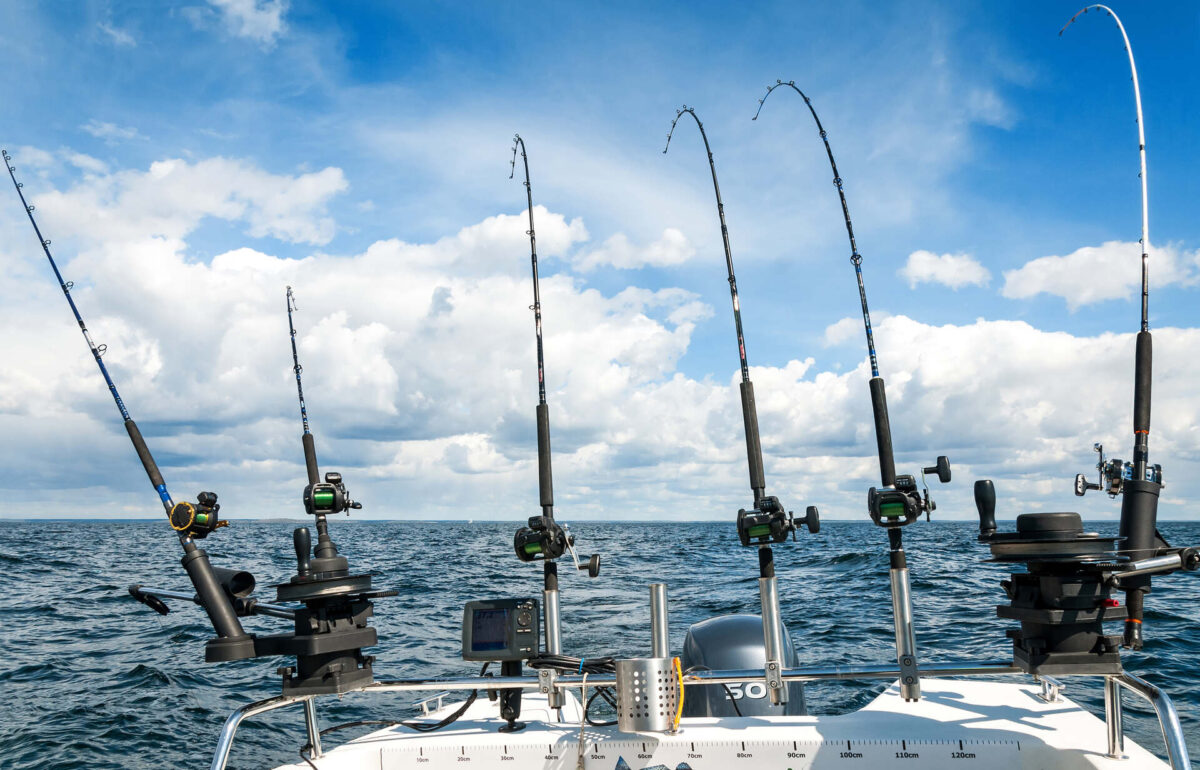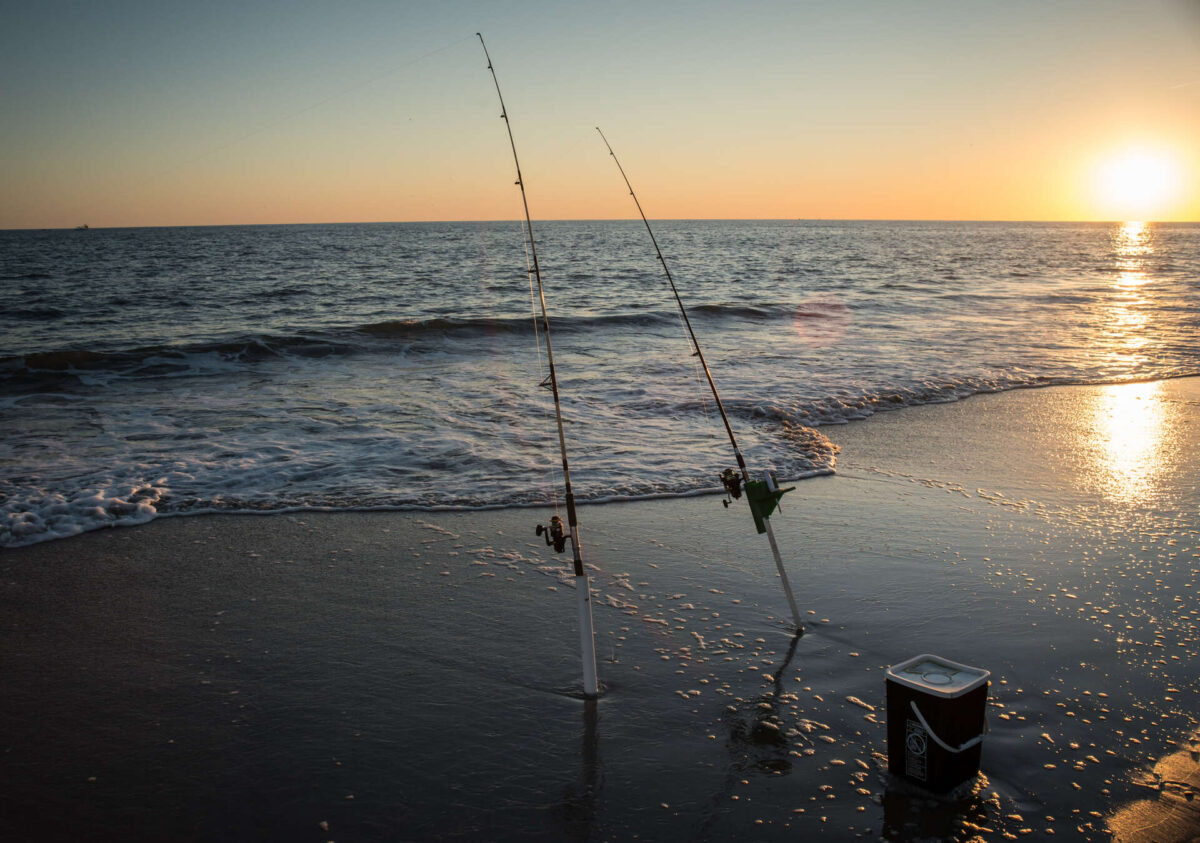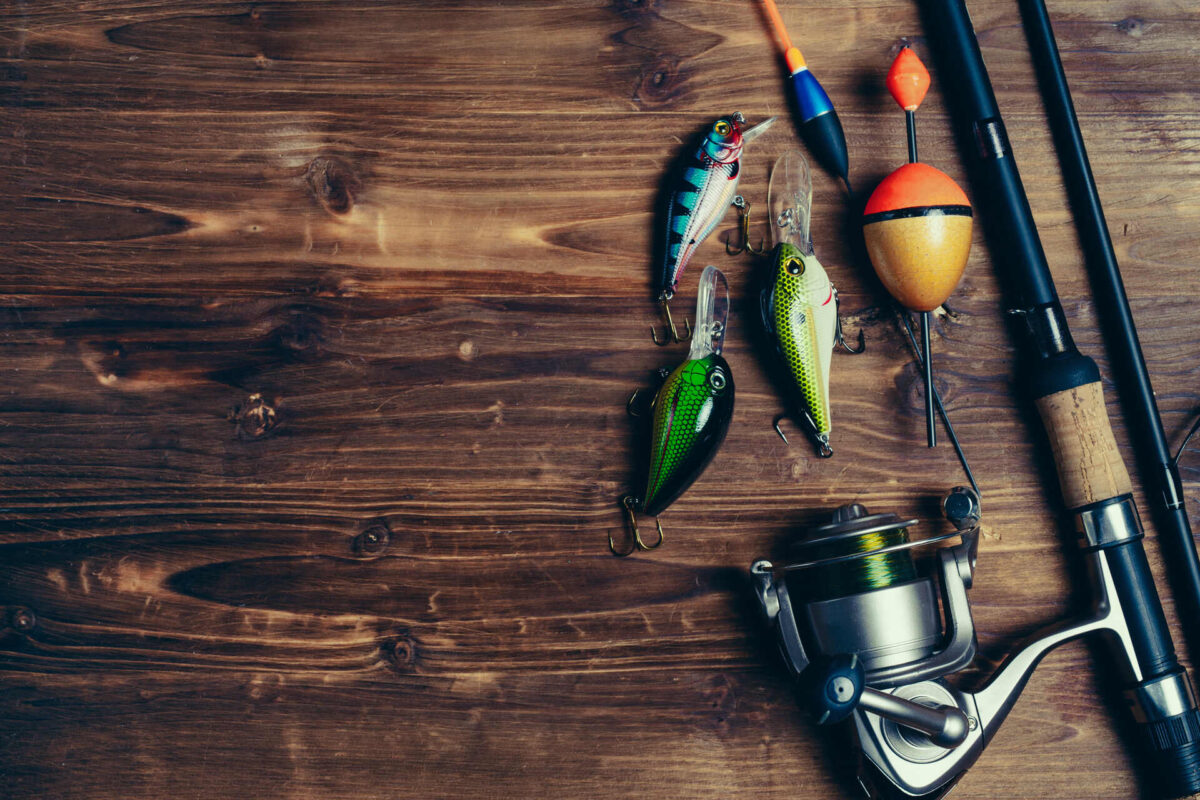When prepping angling gear for relocating across the country, start by assessing your equipment, decide what is worth relocating, and gather enough supplies to box it all up. Disassemble and clean everything and wrap it separately for safe transport. If you find it overwhelming, hire professionals to handle it in your place.
How to Pack a Fishing Rod When Moving Across the Country
Moving cross country and wondering how to pack a fishing rod safely? The process can be delicate, but with the right approach, you can ensure your favorite angling gear reaches your new home in perfect condition. Follow our guide on how to pack your gear for a smooth and worry-free transition to your next fishing adventure.


Go Over Your Fishing Gear and Asses It
Going over your gear and assessing it is an essential practice for any angler. Taking detailed inventory of your items and related equipment ensures that everything is in proper working order. This involves examining the rods for any signs of wear or damage, checking the reels for smooth operation, inspecting the lines for fraying, and evaluating the condition of hooks, lures, and other accessories.
A thorough assessment not only helps in maintaining the functionality of the equipment but also allows you to identify what might need replacing or upgrading. This proactive approach ensures that you’re well-prepared for your next angling expedition after relocating to a new city, avoiding any unexpected issues that might arise.
Decide Which Fishing Rods to Pack and Which Ones to Leave Behind
This decision should take into consideration not only the type of angling you plan to do but also the local fishing regulations of your future destination. Checking these regulations ensures compliance with specific gear requirements, such as rod length, reel type, line weight, or bait restrictions. Being aware of these rules and packing the appropriate gear can save you from legal troubles and optimize your experience.


Before You Can Pack a Fishing Rod, You Must Gather the Right Supplies
Properly selecting and utilizing these packing materials will help maintain the integrity of your gear during transit, so you can arrive at your destination ready to go angling. Be sure to create a detailed inventory list to track everything as soon as you store it away. On that note, here’s a list of the different packing materials for safely packing your gear:
- Angling rod cases or tubes,
- Bubble wrap for individual wrapping,
- Duct tape to secure wraps and seal boxes,
- Hard cases or right-sized boxes, customized if available,
- Foam tubing or pool noodles for additional cushioning,
- Protective sleeves for reel and guides,
- Cardboard dividers to separate multiple rods,
- Moisture-absorbing packets to prevent dampness,
- Zip ties or Velcro straps to keep everything bundled together,
- Foam peanuts or insert materials for filling void spaces between objects,
- Heavy-duty markers for labeling boxes,
- Scissors or a box cutter for unpacking and adjustments.
Disassemble and Clean the Fishing Rods
Properly disassembling, cleaning, and organizing your equipment not only facilitates efficient packing but also ensures that your equipment is in optimal condition and ready for use after your relocation to another state. Safely disassembling everything into sections helps to minimize the risk of damage during transit. Care must be taken to clean and thoroughly dry each piece of equipment to prevent moisture, which could lead to corrosion or other damage. It is equally vital to organize and label different components, such as guides, reels, and handles, for easy reassembly at the destination.
Watch this video on how to clean your equipment and help it last longer.
Don’t Forget to Prepare Reels and Other Accessories
Taking these careful steps ensures that the reels and accessories are kept secure and in prime condition. Start by detaching the angling reels from the poles and storing them in separate cases or boxes, ensuring they are well-protected. Wrapping reels with protective paddings, such as bubble wrap or packing paper, will prevent scratches and impact damage during transport.
Additionally, boxing up angling accessories like lines, lures, and hooks requires thoughtful organization. Using compartmentalized containers or tackle crates can help keep everything in its place, allowing for easy access and preventing tangling or loss.


Hire Cross-Country Movers Who Know How to Handle Delicate Items
Keep in mind that hiring long-distance movers who know how to handle delicate and fragile items is vital when relocating valuable and sensitive angling equipment. Communicate with the cross-country moving service provider about the delicate nature of your poles and other gear and ensure they understand the special care required. Inquiring about additional insurance coverage for valuable angling gear provides an extra layer of protection in case of accidental damage or loss during transit.
Confirming the company’s experience in handling delicate and specialized items is crucial. So always choose from reputable cross-country moving companies with a track record of successfully transporting such items to avoid relocation scams. Be sure to verify those records with the Better Business Bureau (BBB) or even Federal Motor Carrier Safety Administration (FMCSA). By taking these steps, you can trust that your precious equipment will be handled with the care and expertise it deserves during the long journey.
Moving
Our mission is to bring high quality, long distance moving services to every customer.
Packing
Our expert moving teams are trained to ensure the safety of your personal belongings.
Moving Insurance
Cross Country Moving Company is the most trusted name in the relocation industry in the country.
There Are Other Services You Should Consider Booking as Well
When planning a relocation, there are other long-distance moving services you should consider booking that could help you transport your angling gear as smoothly as possible, and the Cross Country Moving Company is the right choice for this endeavor.
Our professional packing services are invaluable, as our knowledgeable team offers expertise in securely wrapping and boxing up your equipment and accessories. Also, our storage facilities may be necessary if there’s a gap between moving out and arriving at your new destination, providing a safe place for your gear. Together, our cross-country moving services create a comprehensive relocation solution, easing the stress of relocating your valuable equipment and ensuring that everything reaches your new location safely and efficiently.


With Our Guide, You’ll Be Able to Bring Your Fishing Equipment Along for the Ride
From careful packing to choosing the right services, Cross Country Moving Company has provided a step-by-step process tailored to the needs of every angler. Ensure your poles, reels, and accessories arrive in prime condition and ready for action. For further assistance or to discuss your specific requirements, contact us today. Your next great catch awaits, and we’re here to help you get there!
FAQ
What Packing Supplies Do I Need to Ensure the Protection of My Fishing Rod During the Move?
For protecting your equipment during a move, you’ll need a specialized case or tube, bubble wrap or foam for cushioning, packing tape to secure wraps, moisture-absorbing packets to prevent dampness, and a sturdy box if not using a specialized case.
How Do I Pack My Fishing Rod Safely for a Long-Distance Move?
To pack an angling pole safely for a long-distance move, disassemble it into sections if possible. Use specialized cases or tubes, and wrap each section in bubble wrap or foam for added protection. Secure everything with a duct and label the container as “Fragile.” Store vertically during transit to minimize the risk of damage.
Should I Disassemble My Fishing Rod Before Packing It for the Move?
Yes, disassembling your angling pole before boxing it up for a move is advisable. Breaking it down into sections allows for easier and safer packing. Using individual wraps and cushioning for each part minimizes the risk of damage during transit. Ensure proper labeling of components for efficient reassembly at the destination.
How Can I Clean and Prepare My Fishing Rod for Transportation?
To clean and prepare your equipment for transportation, disassemble it if possible, and wash each part with mild soap and water. Thoroughly dry all components to prevent rust, and lubricate the reel if necessary. Ensure all parts are well-protected and cushioned for storing, keeping them ready for immediate use at your new destination.
Can I Pack My Fishing Reel and Accessories Along With the Rod?
Yes, you can pack your reel and accessories along with the pole, but it’s advisable to pack reels separately with protective padding to prevent damage. Accessories like lines, lures, and hooks can be stored in organized containers. Ensure everything is well-cushioned and placed in sturdy, appropriately sized containers to avoid any movement or damage during transit.
Are There Specific Cases or Boxes Designed for Packing Fishing Rods During a Move?
Yes, there are specific cases and tubes designed for boxing up this kind of equipment for transportation. These specialized containers are often adjustable to fit various pole lengths and provide optimal protection. They are padded and shaped to hold everything securely, minimizing the risk of damage. Investing in such cases can be highly beneficial for long-distance or frequent travel.
How Should I Label and Mark the Boxes Containing My Fishing Rods?
Label and mark the boxes containing your equipment with “Fragile” and “Fishing Gear” to ensure proper handling. You may also include directional arrows to indicate the correct upright position. If you’ve disassembled the rods, consider adding an inventory list or specific labels for each part inside the box to facilitate reassembly at your new location.
Should I Inform the Cross-Country Moving Company About the Delicate Nature of My Fishing Gear?
Yes, it’s essential to inform your company about the delicate nature of your gear. This communication ensures that they handle the items with extra care and attention. Providing detailed instructions or specific requests related to your equipment may also be beneficial in assuring its safe transportation.
Is It Possible to Transport Fishing Rods With Me in My Vehicle During the Move?
Yes, it is possible to transport your gear in your vehicle during a move. Secure them properly using specialized cases or cushioning materials, and place them in an area where they won’t be crushed or bent. If the rods are disassembled and packed securely, they can be safely transported to your vehicle without damage.
What Are the Alternative Transportation Methods for Moving Fishing Rods Across the Country?
Alternative transportation methods for moving angling equipment across the country include shipping them via a specialized courier service that handles fragile items, utilizing a professional moving company with experience in transporting delicate objects, or considering air cargo services with proper packaging and labeling. Each method requires careful packing and clear communication about the delicate nature of the items.
How Should I Unpack and Reassemble My Fishing Rods in the New Home?
Upon arrival, unpack your gear carefully, removing all protective materials. Refer to any labels or notes you made during the boxing-up process to assist with reassembly. Follow the manufacturer’s guidelines or your familiar method to reassemble the poles. Inspect for any damage that might have occurred during transit, and store them properly for future use.
Should I Inspect My Fishing Rods for Damage After They Arrive at the Destination?
Yes, you should inspect your equipment for damage after they arrive at the destination. Carefully examine each part for any signs of scratches, bends, or other damage that might have occurred during transit. This immediate inspection allows you to address any issues quickly, whether that means repairs or filing a claim with the moving company.
What Is the Best Way to Store My Fishing Rods in the New Home After the Move?
The best way to store your gear in your home after the move is in a cool, dry place, away from direct sunlight. Use pole racks or holders to keep them upright and prevent bending. Ensure that reels and accessories are organized and easily accessible. Proper storage preserves the condition and prolongs the life of your fishing gear.
Are There Any Additional Tips for Maintaining the Condition of My Fishing Gear During the Move?
Additional tips for maintaining the condition of your gear during a move include using quality packing materials, avoiding overpacking boxes, ensuring proper labeling, keeping an inventory list, and considering insurance for valuable items. Taking extra time to pack carefully and thoughtfully and communicating with movers about special handling can also contribute to preserving the condition of your gear.
Can I Use Regular Moving Boxes, or Should I Invest in Specialized Fishing Rod Cases?
While regular moving boxes can be used with careful padding and packing, investing in specialized cases is advisable for optimal protection. Specialized cases are designed to fit and protect poles, reducing the risk of damage. If using regular crates, ensure adequate cushioning and support, and choose the right size to prevent movement during transit.
What Should I Do if I Have Poles of Different Lengths or Types?
If you have poles of different lengths or types, consider using adjustable specialized cases or custom padding in regular boxes to accommodate varying sizes. Disassemble everything if possible and store similar pieces together, using proper cushioning.
Should I Take Any Additional Precautions When Using a Moving Company to Transport My Gear?
When using a moving company to transport your delicate equipment, ensure clear communication about their delicate nature and inquire about their experience with such items. You may also want to consider additional insurance for valuable gear. Check the packing carefully, or opt for professional packing services, to ensure that your equipment is well-protected.
Are There Any Restrictions or Guidelines for Moving Gear Across State Lines?
Moving this gear across state lines usually doesn’t involve restrictions, but it’s wise to check local regulations in the destination state. Different states may have varying rules regarding angling licenses, equipment, or the transportation of certain angling-related substances like bait. Ensuring compliance with these local regulations will help you avoid potential legal issues or fines.
How Can I Ensure That My Equipment Is Well-Protected and Ready for Angling Adventures in the New Location?
Ensure that everything is well-protected and ready for new adventures by using specialized cases or ample cushioning during the move. Clean, inspect, and lubricate the rods as needed before packing. Upon arrival, unpack and reassemble carefully, inspecting for any damage. Store them properly in the new location, and have them easily accessible for your next angling excursion.






